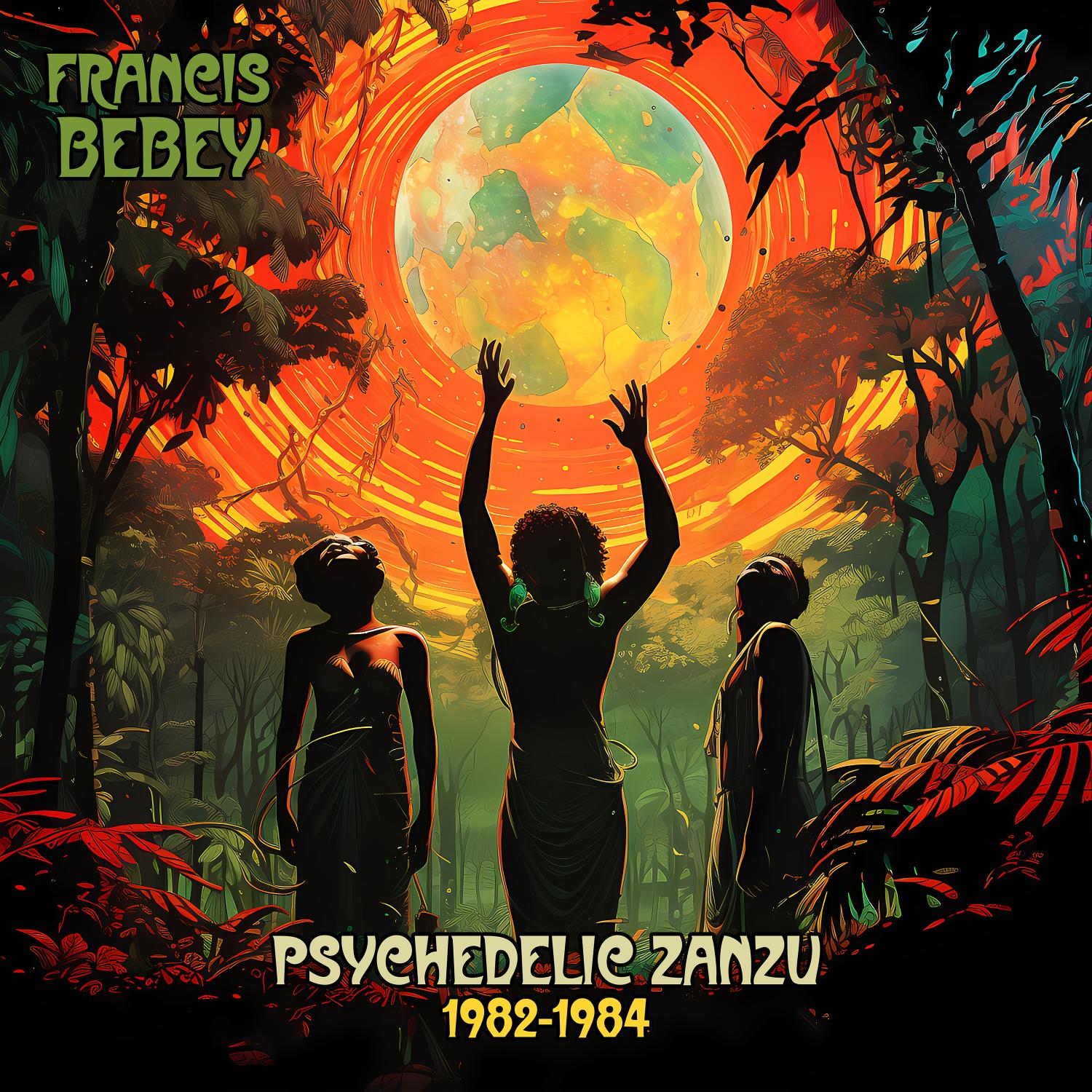Francis Bebey
"Psychedelic Zanzu 1982-1984"
The first time I saw a sanza, it was simply placed in our house, on a piece of furniture in the family living-dining room – a space which was also transformed, daily, into a recording studio for our father –. Besides, the object was more like the box than the instrument, a mysterious instrument, which had arrived at our house like a lot of things had happened, somewhat by miracle. We knew our father had a taste for collecting anything that could produce sound. I don't know where he brought this sanza from. It was a somewhat crude model, clearly artisanal, with only a few blades. I don't think he really played that sanza. The sounds that came out of it seemed particularly bizarre to me, out of tune to my ears as a young musician trained in Western classical music. Because, like my brothers and sisters, I had learned the piano. I found it hard to understand how one could bear such sounds and the truth is that all this, this interest of our father for "other sounds" did not interest me.
I was going to high school at the time, it was the very late 1970s, and my plans weren't about music at all. I was planning to pass my baccalaureate and become a cook. In the early 1980s, music started to appeal to me. I was still not decided on my professional career. I contented myself with “serious” studies of English, frequenting the jazz clubs of Les Halles, in Paris, where I sometimes threw myself into jamming. Then I created my first band with professional musicians from whom I had hidden my age and my lack of experience. France was just opening up to “world music”, musicians of all origins were performing in Paris, it was a great time. My father asked us, my brother Toups and me, to accompany him during some concerts. We have, in particular, toured Tunisia together, on the occasion of the Carthage International Festival, in 1983. This was the time when his success extended to the French-speaking world. Everyone was waiting to hear his humorous songs like “Agatha” or “La condition masculine”. But in his corner, he continued his research, he was interested in electronic music, sanza, pygmy polyphony...
One day he put a sanza in my hands, without saying more. You had to understand the message: "Let's see what you can do with this!" And there, I really discovered something. By exploring the instrument, playing, I went beyond the "imperfect" side of the sounds and began to find the result fascinating. To play the sanza is to encounter a universe that transports you in a very zen and bewitching way. The sounds remind me of a rainbow, with the rain at the same time as the sun. Something very peaceful. It's really an instrument that allows you to play life. Between my father and me, the sanza is also the instrument that, among all those he played, we shared because I am a pianist, he was a guitarist. And here is between us, with us, an eminently African instrument, which I also share with my musician brother, Toups. Our father liked to tell one of the legends of the sanza: the instrument that managed to annihilate the boredom felt by… the Creator himself! The instrument that gives life to the world, to beings and to things.
I did not take part in the elaboration of the various discs that my father devoted to the sanza. He did that, sort of in his lab. But today, I can't imagine giving a concert without resorting to the sanza. The piano is still there, so people don't lose their balance and wonder what weird thing is going on in their ears! But the disturbed and disturbing side of the sanza seems interesting to me. And something always happens, between the public and the sanza: in reality, people are delighted. This is undoubtedly the secret of this instrument, its beneficial and… magical power!
Written by Patrick Bebey
Written & Produced By: Francis Bebey
Published by Copyright Control
(P) & (C) 2014 Ozelika
| 1. | Sanza Nocturne | |||
| 2. | Bissau | |||
| 3. | Sanza Tristesse | |||
| 4. | African Sanza | |||
| 5. | Forest Nativity | |||
| 6. | Sunny Crypt | |||
| 7. | Blinta Madiallo | |||
| 8. | Tumu Pakara | |||
| 9. | Di Saegri | |||
| 10. | Ngoma Likembe | |||
| 11. | Guine | |||
